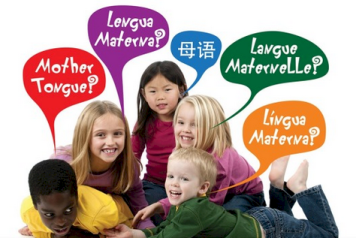How to distinguish a translator from a non-professional

Translation is an activity that lends itself easily to professional intrusion, after all anyone with a computer and knowledge of a second language can translate. However, there are people that have academic training in translation and earn a living by translating, dedicating themselves completely to this activity. It is no less true that there are people who, due to circumstances in their life, have perfect qualities to be great translators but who are not professionally dedicated to translation. There are also those who I would call forced translators. I'm referring to people with language knowledge who, although they don't have specific translation training, are pushed into translating for their companies, due to management issues and to reduce costs, something we often find in SMEs.
Índice de contenidos
Index of contents
Index du contenu
Inhaltsverzeichnis
Indice dei contenuti
- They have a high degree of understanding of the foreign language and aspects of the culture
- They use assisted translation programmes: SDL Studio, memoQ, WordFast
- They have translation training
- They only translate into their native language
- They can't be experts in everything
- They ask if they don't understand the original text
- They are members of a professional translation association
- They aren't the cheapest
- They know the formal aspects of writing
Having said that, I would like to list a number of characteristics that I generically find when meeting translation professionals, and which can serve to separate the wheat from the chaff, and not end up in the hands of the non professional intruders. Finally, note that if a translator does not meet these descriptions, this does not mean that they are not a good translation professional. The following characteristics cam serve as a guide, no more.
Many of these characteristics are extrapolated to the translation company (or translation agency). If you are not sure whether you need a professional translator or a translation company, you can read our blog on this matter.

They have a high degree of understanding of the foreign language and aspects of the culture
This seems obvious, but it is important to take into account and should be one of the most important aspects to evaluate. You cannot be a good translator and consider yourself a professional without having a high level of understanding of written texts, at least of the type of texts that you are going to translate. For this reason, those that carry out a large part of their working or academic life in a foreign country usually comply with this essential requisite, and this equips them with the first tool to be able to be a good professional translator.
They use assisted translation programmes: SDL Studio, memoQ, WordFast...
Especially in the field of technical translation, professional translators handle assisted translation programmes (or CAT, computer assisted translation) that are known in professional jargon as translation memories. Said programmes have two main functions: 1) extract the text from multiple formats (such as MS Word, MS PowerPoint, Adobe InDesign, xml files or HTML and many more). In this way, translators can work with very diverse formats in a unique interface; 2) create a database (or translation memory) with all of the translations carried out by the translator with functions to speed up the translation work (for example, you can look for a term to see if it has been translated before).
Below is a screen shot of SDL Studio which is the assisted translation programme with the largest market share among professional translators.

As I was saying, the use of these programmes is especially useful for technical translation, where text is often repeated and is similar, although it is also useful in other fields, in order to reuse terminology that has been translated before.
However, in the literary field of translation, the use of these programmes can be counter-productive, so it is normal for literary translators not to use these tools. I have also encountered good legal translators specialised in the translation of legal documents who also use these type of programmes.
They have translation training
In reality, there are many countries (Spain, Germany, France, Italy, Austria... to name a few) where you can study translation at University level. Translation studies include the study of foreign languages, their culture, subjects related to the language and grammar as well as specialised subjects in the technical and legal fields. There are also diverse postgraduate programmes focused on specialised fields such as medical or audiovisual translation.

Unfortunately, and I'm speaking especially in the case of university studies in Spain, as they are the ones I know first-hand, higher education in translation is not synonymous with being a professional translator. There are still many teachers in Spanish Universities who are far removed from the working world of translation, so they do not have the vision nor the experience to give training focused on “real life”. Secondly, and this is the most important aspect, learning a foreign language to an acceptable level in order to be a good professional translator is left in the hands of students. It is very difficult to reach a high level of the language without having been immersed in the culture and language for a significant amount of time.
In any case, translation training is very advanced and it is important to achieve the best professional results, which is sometimes lacking in translators who have a great knowledge of the language and of a field of expertise.
They only translate into their native language
From my point of view, I consider a characteristic of professionalism that translators only translate into their native language. This is a principle that many translators are taught in translation faculties and I believe that in the majority of cases, it is essential to follow this if you want to get the best results. Having said this, I am sure, and I know some exceptions, that there are people with such knowledge of a foreign language that they areperfectly capable of creating translations achievable only by few natives, but I stress, they are the exceptions rather than the rule.

Sometimes our company receives CV's from translators who offer 20 combinations of languages. This is often pointed out in the following manner: English<>Spanish<>Portuguese<>German. I imagine that the majority of us know people who have a high knowledge of five languages, but to be able to produce texts of a professional quality is in the reach of very few people, and I personally know none, although I don't want to say that it isn't possible. My advice is stay away from translators who offer so many language combinations.
They can't be experts in everything
I remember that during my years at the faculty of translation in Granada, a both loathed and admired scientific and technical translation teacher, Ricardo Muñoz, told us: “Your specialist area will depend on the market”. I'm a Biological Science graduate specialising in Biochemistry and I can say that my field of specialisation is dentistry. I got my first in-house job by passing a translation test on a text about composites (the petroleum-based material that has replaced gold and silver amalgam in dental restorations).
With my personal example I want to say that professional translators can know any topic, but NOT all topics and that when you have many years of experience, it makes sense to focus on an area of translation, because better translation results will be achieved and translation will be a lucrative activity for the translator.

My advice to those looking for a professional translator is to stay away from translators who are specialised in everything and, my advice to translators is that they promote their services, highlighting the areas of expertise where they have more experience and knowledge.
At our company, we ask translators to use a registration form when registering. In one part of the form, it asks the translators to indicate their fields of specialisation. On many occasions, we find that translators indicate that they are specialists in virtually every field. If we think that a cardiologist doesn't know much about the knowledge and vocabulary of a neurologist or a stomatologist, what are we supposed to think about a translator who claims to be a specialist in everything?! When someone says they know everything, they are saying that they are not specialised in anything.
They ask if they don't understand the original text
Linking with the previous paragraph, which states that a translator cannot be an expert in every field, we can also say that a translator is rarely going to know more than the author of the text or know the terminology and the products of a company more than the company itself. Many translators are scared of asking clients about terms or phrases that they don't understand, faced with the possibility, which is not unfounded, that the client may interpret this as the translator not having a good command of the language or the field of expertise.

In my experience as project manager, the best translators are those who don't have problems in showing a lack of knowledge with the objective of getting the best translation possible. In many cases, these translators expose errors in the original that as clients, we must always appreciate.
They are members of a professional translation association
Although it is obvious that belonging to a professional association in the translation sector (ATA, ITI, Asetrad, SFT...) doesn't convert anyone into a professional translator, it is an extended practice among professional translators to belong to an association in the sector.

Membership to a professional translation association is a good way of receiving information about new techniques and job opportunities. It is also a useful way for translators to offer a professional image. Furthermore, the majority of associations include their associates in a directory where clients can contact them to hire their services. Some associations, as is the case of the ATA (American Association of Translators) offer their members the possibility of doing a translation exam and getting a certificate that endorses their translation competency, which is an important guarantee when hiring a translator.
They aren't the cheapest
There is no doubt that translation services are not cheap. It is common to see surprised faces when people find out the cost of a professional translation when hiring this type of service for the first time.
There are those who still naively think that you can translate the company's advertising materials or product manuals through an automatic translator, for example, Google Translate for free. The truth is that although we may be tempted to go for the cheapest option, it is important to evaluate how cheap it actually is, and don't trust a translator who offers you an option that is half as expensive, to state some kind of figure. There is no such thing as a free lunch. Being a good translator requires investing in technology, specialised training (university or not) and a high level of knowledge of at least two languages and one or various fields of specialisation. It takes many years and dedication to be a good professional translator.

Many clients are tempted to accept the cheapest quotes, generally due to lack of experience and/or means for assessing the quality of the translation. The perfect translation doesn't exist, as it is relatively easy to find improvable aspects in the translations of even the best and most experienced translators, but there is a great distance between perfection and a disaster. I'm sure that if more tools and means to assess the quality of translations existed, the work of good translators would be paid even better. In reality, it is impossible for many translation consumers to distinguish between a translation done by Google translate and the best professional translators, because it is easy to understand that they often opt for the cheaper quote.
They know the formal aspects of writing
If you find oversights in formal aspects of the writing of the translator you wish to hire, such as accent, spelling or punctuation rules, you must be wary of the professionalism of the translator. Part of the skills of a professional translator is the ability to produce ruthless texts from a formal aspect.
Other articles you may be interested in:

Josh Gambin holds a 5-year degree in Biology from the University of Valencia (Spain) and a 4-year degree in Translation and Interpreting from the University of Granada (Spain). He has worked as a freelance translator, in-house translator, desktop publisher and project manager. From 2002, he is a founding member of AbroadLink and is the Head of Sales and Strategy of the company.




Add new comment